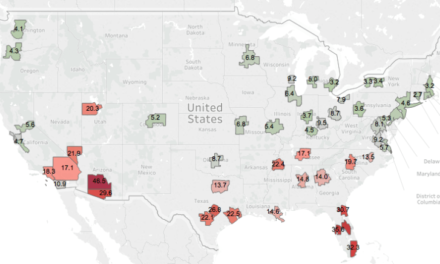From Memphis Daily News:
The Memphis Talent Dividend (MTD) College Attainment Initiative is a more than 100-member mission to increase the number of college graduates in the Memphis Metropolitan area by 1 percent over the next five years.
Advocates say that if the region can increase its college attainment by just 1 percentage point, or 8,002 graduates, it will realize a $1 billion annual talent dividend.
“About 23.7 percent of our population possesses a four-year college degree, and if we can take that up to 24.7, that equals a $1 billion annual increase in personal income,” said MPACT Memphis CEO Gwyn Fisher. “It’s the same as if we recruited a company with a $1 billion annual payroll.”
In 2008, CEOs for Cities, a Chicago-based nonprofit, introduced comprehensive research on three areas of great importance to cities: talent, poverty and the environment.
The research, prepared by Carol Coletta of CEOs for Cities and economist Joe Cortright, showed how the Talent Dividend could have a major impact on cities.
“It’s a new way of looking at economic development,” said Fisher. “In the past, when you talked about building personal income within a community, you talked about recruiting companies or building schools. This is a whole new ballgame.”
Leadership Memphis launched the initiative in the Bluff City, which, in terms of the percentage of the population that possesses a college degree, ranks 48th out of the 51 biggest metropolitan areas.
“We know that there are 226,000 people in the Memphis metro area who started but didn’t finish college,” said David Williams, CEO of Leadership Memphis. “We know that there are about 15,000 who only lack less than a year. That’s some pretty low-hanging fruit for us as we look at how to increase that college attainment rate.”
More than 100 individuals, companies, church groups, institutions of higher learning, neighborhood associations and others have committed to supporting the Memphis Talent Dividend College Attainment Initiative.
It’s made up of six collaboratives: business, community and faith, higher education, youth organizations and media.
“It is truly a collaborative effort,” said Williams. “This is not a situation that Memphis got into within a year, and it’s taking a lot of really bright minds coming together.”
The brainstorming kicked off with 100 Things in 100 Days, conceived by Bridges president Jim Boyd, who co-chairs the Youth Organization Collaborative of the Memphis Talent Dividend.
100 Things in 100 Days, which started in August and ended in November, identified the simple things everyone can do to help increase college attainment.
Some organizations agreed to provide full scholarships for several employees to attend colleges, while others committed to encouraging their employees to use tuition reimbursement benefits.
On an individual level, citizens committed to mentor, tutor, drive students to classes, and pay for eye exams to ensure that low-income students could see the board.
With childcare being a major obstacle for parents wanting to finish college, many people committed to babysitting their children.
“For the first time, economic development is something you and I can do,” said Fisher.
Williams said that a woman who lived outside of the region contacted Leadership Memphis after hearing about the program to ask if she could donate a textbook to a student in need.
That request led to the development of a fund for textbook donations, started by the
Institutional Advancement Department at University of Memphis, which will appeal to 15,000 alumni to donate one textbook per semester for a deserving student.
Local colleges continue to find new ways to support the Memphis Talent Dividend College Attainment Initiative.
“A number of colleges now offer college credit for your work and life experience,” said Williams. “The University of Memphis has a program like that, and you can get up to 30 hours towards your undergraduate degree and up to six hours towards a graduate degree by meeting the criteria.”
Williams said the University of Phoenix and Union University in Germantown have similar programs, and he said Victory University has started a tuition assurance plan that guarantees a student’s tuition won’t increase for up to five years as long as good grades are maintained.
But the college attainment initiative isn’t only about increasing the number of graduates; the other vital part is keeping them in the city, which is where MPACT comes in.
“MPACT’s role is through mentoring,” said Fisher. “We pair young professionals with college juniors and seniors to not only help them make sure they graduate, but to prepare them for the world of being a young professional. We want them to know that Memphis is a great place to be a college graduate. There are opportunities here.”





Now all you have to do is make the students who go to school here actually possess the knowledge required to successfully get to college and you got it licked.
Right now the majority of students think that doing their work is ONLY doing their teacher a favor and they aren’t inclined to do that. It’s a systemwide epidemic that MOST MCS students haven’t seen any accountability on he part of he system for anything, so, being that they spend MOST of their awake time in school, THAT lack of accountability is their GREATEST INFLUENCE IN LIFE.
The MEA, which does a pisspoor job of representing teachers (please pick a better union soon), is fighting to keep accountability as far from discussion as possible, or, it may point to MEA’s culpability in the problem. I think you could absolutely calculate the damages they have caused here and sue.